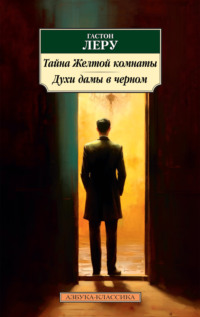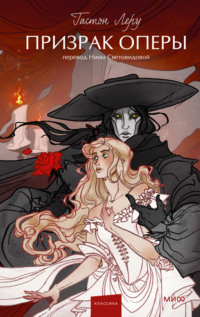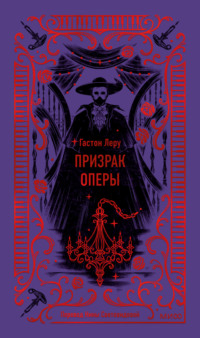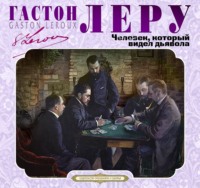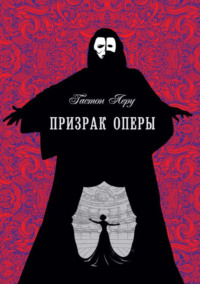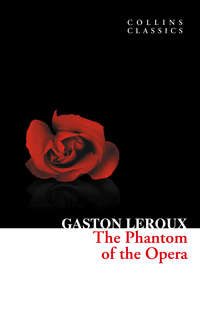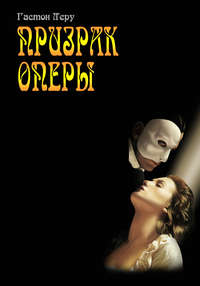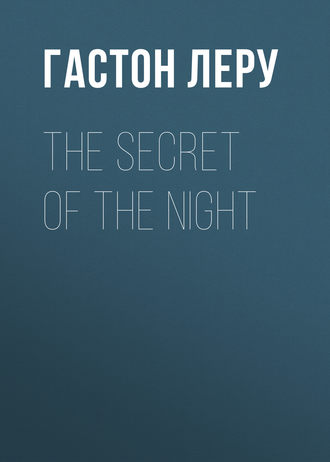 полная версия
полная версияThe Secret of the Night
“But they are going to come! They are going to come!”
“I believe so.”
“But I can’t understand how you can remain so quiet with such a certainty. Great heavens! what proof have you that they have not been there already?”
“Just an ordinary pin, madame, not a hat-pin this time. Don’t confuse the pins. I will show you in a little while.”
“He will drive me distracted with his pins, dear light of my eyes! Bounty of Heaven! God’s envoy! Dear little happiness-bearer!”
In her transport she tried to take him in her trembling arms, but he waved her back. She caught her breath and resumed:
“Did the examination of all the hat-pins tell you anything?”
“Yes. The fifth hat-pin of Mademoiselle Natacha’s, the one in the toque out in the veranda, has the tip newly broken off.”
“O misery!” cried Matrena, crumpling in her chair.
Rouletabille raised her.
“What would you have? I have examined your own hat-pins. Do you think I would have suspected you if I had found one of them broken? I would simply have thought that someone had used your property for an abominable purpose, that is all.”
“Oh, that is true, that is true. Pardon me. Mother of Christ, this boy crazes me! He consoles me and he horrifies me. He makes me think of such dreadful things, and then he reassures me. He does what he wishes with me. What should I become without him?”
And this time she succeeded in taking his head in her two hands and kissing him passionately. Rouletabille pushed her back roughly.
“You keep me from seeing,” he said.
She was in tears over his rebuff. She understood now. Rouletabille during all this conversation had not ceased to watch through the open doors of Matrena’s room and the dressing-room the farther fatal door whose brass bolt shone in the yellow light of the night-lamp.
At last he made her a sign and the reporter, followed by Matrena, advanced on tip-toe to the threshold of the general’s chamber, keeping close to the wall. Feodor Feodorovitch slept. They heard his heavy breath, but he appeared to be enjoying peaceful sleep. The horrors of the night before had fled. Matrena was perhaps right in attributing the nightmares to the narcotic prepared for him each night, for the glass from which he drank it when he felt he could not sleep was still full and obviously had not been touched. The bed of the general was so placed that whoever occupied it, even if they were wide awake, could not see the door giving on the servants’ stairway. The little table where the glass and various phials were placed and which had borne the dangerous bouquet, was placed near the bed, a little back of it, and nearer the door. Nothing would have been easier than for someone who could open the door to stretch an arm and place the infernal machine among the wild flowers, above all, as could easily be believed, if he had waited for that treachery until the heavy breathing of the general told them outside that he was fast asleep, and if, looking through the key-hole, he had made sure Matrena was occupied in her own chamber. Rouletabille, at the threshold, glided to one side, out of the line of view from the hole, and got down on all fours. He crawled toward the door. With his head to the floor he made sure that the little ordinary pin which he had placed on guard that evening, stuck in the floor against the door, was still erect, having thus additional proof that the door had not been moved. In any other case the pin would have lain flat on the floor. He crept back, rose to his feet, passed into the dressing-room and, in a corner, had a rapid conversation in a low voice with Matrena.
“You will go,” said he, “and take your mattress into the corner of the dressing-room where you can still see the door but no one can see you by looking through the key-hole. Do that quite naturally, and then go to your rest. I will pass the night on the mattress, and I beg you to believe that I will be more comfortable there than on a bed of staircase wood where I spent the night last night, behind the door.”
“Yes, but you will fall asleep. I don’t wish that.”
“What are you thinking, madame?”
“I don’t wish it. I don’t wish it. I don’t wish to quit the door where the eye is. And since I’m not able to sleep, let me watch.”
He did not insist, and they crouched together on the mattress. Rouletabille was squatted like a tailor at work; but Matrena remained on all-fours, her jaw out, her eyes fixed, like a bulldog ready to spring. The minutes passed by in profound silence, broken only by the irregular breathing and puffing of the general. His face stood out pallid and tragic on the pillow; his mouth was open and, at times, the lips moved. There was fear at any moment of nightmare or his awakening. Unconsciously he threw an arm over toward the table where the glass of narcotic stood. Then he lay still again and snored lightly. The night-lamp on the mantelpiece caught queer yellow reflections from the corners of the furniture, from the gilded frame of a picture on the wall and from the phials and glasses on the table. But in all the chamber Matrena Petrovna saw nothing, thought of nothing but the brass bolt which shone there on the door. Tired of being on her knees, she shifted, her chin in her hands, her gaze steadily fixed. As time passed and nothing happened she heaved a sigh. She could not have said whether she hoped for or dreaded the coming of that something new which Rouletabille had indicated. Rouletabille felt her shiver with anguish and impatience.
As for him, he had not hoped that anything would come to pass until toward dawn, the moment, as everyone knows, when deep sleep is most apt to vanquish all watchfulness and all insomnia. And as he waited for that moment he had not budged any more than a Chinese ape or the dear little porcelain domovoi doukh in the garden. Of course it might be that it was not to happen this night.
Suddenly Matrena’s hand fell on Rouletabille’s. His imprisoned hers so firmly that she understood she was forbidden to make the least movement. And both, with necks extended, ears erect, watched like beasts, like beasts on the scent.
Yes, yes, there had been a slight noise in the lock. A key turned, softly, softly, in the lock, and then—silence; and then another little noise, a grinding sound, a slight grating of wire, above, then on the bolt; upon the bolt which shone in the subdued glow of the night-lamp. The bolt softly, very softly, slipped slowly.
Then the door was pushed slowly, so slowly. It opened.
Through the opening the shadow of an arm stretched, an arm which held in its fingers something which shone. Rouletabille felt Matrena ready to bound. He encircled her, he pressed her in his arms, he restrained her in silence, and he had a horrible fear of hearing her suddenly shout, while the arm stretched out, almost touched the pillow on the bed where the general continued to sleep a sleep of peace such as he had not known for a long time.
VII. ARSENATE OF SODA
The mysterious hand held a phial and poured the entire contents into the potion. Then the hand withdrew as it had come, slowly, prudently, slyly, and the key turned in the lock and the bolt slipped back into place.
Like a wolf, Rouletabille, warning Matrena for a last time not to budge, gained the landing-place, bounded towards the stairs, slid down the banister right to the veranda, crossed the drawing-room like a flash, and reached the little sitting-room without having jostled a single piece of furniture. He noticed nothing, saw nothing. All around was undisturbed and silent.
The first light of dawn filtered through the blinds. He was able to make out that the only closed door was the one to Natacha’s chamber. He stopped before that door, his heart beating, and listened. But no sound came to his ear. He had glided so lightly over the carpet that he was sure he had not been heard. Perhaps that door would open. He waited. In vain. It seemed to him there was nothing alive in that house except his heart. He was stifled with the horror that he glimpsed, that he almost touched, although that door remained closed. He felt along the wall in order to reach the window, and pulled aside the curtain. Window and blinds of the little room giving on the Neva were closed. The bar of iron inside was in its place. Then he went to the passage, mounted and descended the narrow servants’ stairway, looked all about, in all the rooms, feeling everywhere with silent hands, assuring himself that no lock had been tampered with. On his return to the veranda, as he raised his head, he saw at the top of the main staircase a figure wan as death, a spectral apparition amid the shadows of the passing night, who leaned toward him. It was Matrena Petrovna. She came down, silent as a phantoms and he no longer recognized her voice when she demanded of him, “Where? I require that you tell me. Where?”
“I have looked everywhere,” he said, so low that Matrena had to come nearer to understand his whisper. “Everything is shut tight. And there is no one about.”
Matrena looked at Rouletabille with all the power of her eyes, as though she would discover his inmost thoughts, but his clear glance did not waver, and she saw there was nothing he wished to hide. Then Matrena pointed her finger at Natacha’s chamber.
“You have not gone in there?” she inquired.
He replied, “It is not necessary to enter there.”
“I will enter there, myself, nevertheless,” said she, and she set her teeth.
He barred her way with his arms spread out.
“If you hold the life of someone dear,” said he, “don’t go a step farther.”
“But the person is in that chamber. The person is there! It is there you will find out!” And she waved him aside with a gesture as though she were sleepwalking.
To recall her to the reality of what he had said to her and to make her understand what he desired, he had to grip her wrist in the vice of his nervous hand.
“The person is not there, perhaps,” he said his head. “Understand me now.”
But she did not understand him. She said:
“Since the person is nowhere else, the person must be there.”
But Rouletabille continued obstinately:
“No, no. Perhaps he is gone.”
“Gone! And everything locked on the inside!”
“That is not a reason,” he replied.
But she could not follow his thoughts any further. She wished absolutely to make her way into Natacha’s chamber. The obsession of that was upon her.
“If you enter there,” said he, “and if (as is most probable) you don’t find what you seek there, all is lost! And as to me, I give up the whole thing.”
She sank in a heap onto a chair.
“Don’t despair,” he murmured. “We don’t know for sure yet.”
She shook her poor old head dejectedly.
“We know that only she is here, since no one has been able to enter and since no one has been able to leave.”
That, in truth, filled her brain, prevented her from discerning in any corner of her mind the thought of Rouletabille. Then the impossible dialogue resumed.
“I repeat that we do not know but that the person has gone,” repeated the reporter, and demanded her keys.
“Foolish,” she said. “What do you want them for?”
“To search outside as we have searched inside.”
“Why, everything is locked on the inside!”
“Madame, once more, that is no reason that the person may not be outside.”
He consumed five minutes opening the door of the veranda, so many were his precautions. She watched him impatiently.
He whispered to her:
“I am going out, but don’t you lose sight of the little sitting-room. At the least movement call me; fire a revolver if you need to.”
He slipped into the garden with the same precautions for silence. From the corner that she kept to, through the doors left open, Matrena could follow all the movements of the reporter and watch Natacha’s chamber at the same time. The attitude of Rouletabille continued to confuse her beyond all expression. She watched what he did as if she thought him besotted. The dyernick on guard out in the roadway also watched the young man through the bars of the gate in consternation, as though he thought him a fool. Along the paths of beaten earth or cement which offered no chance for footprints Rouletabille hurried silently. Around him he noted that the grass of the lawn had not been trodden. And then he paid no more attention to his steps. He seemed to study attentively the rosy color in the east, breathing the delicacy of dawning morning in the Isles, amid the silence of the earth, which still slumbered.
Bare-headed, face thrown back, hands behind his back, eyes raised and fixed, he made a few steps, then suddenly stopped as if he had been given an electric shock. As soon as he seemed to have recovered from that shock he turned around and went a few steps back to another path, into which he advanced, straight ahead, his face high, with the same fixed look that he had had up to the time he so suddenly stopped, as if something or someone advised or warned him not to go further. He continually worked back toward the house, and thus he traversed all the paths that led from the villa, but in all these excursions he took pains not to place himself in the field of vision from Natacha’s window, a restricted field because of its location just around an abutment of the building. To ascertain about this window he crept on all-fours up to the garden-edge that ran along the foot of the wall and had sufficient proof that no one had jumped out that way. Then he went to rejoin Matrena in the veranda.
“No one has come into the garden this morning,” said he, “and no one has gone out of the villa into the garden. Now I am going to look outside the grounds. Wait here; I’ll be back in five minutes.”
He went away, knocked discreetly on the window of the lodge and waited some seconds. Ermolai came out and opened the gate for him. Matrena moved to the threshold of the little sitting-room and watched Natacha’s door with horror. She felt her legs give under her, she could not stand up under the diabolic thought of such a crime. Ah, that arm, that arm! reaching out, making its way, with a little shining phial in its hand. Pains of Christ! What could there be in the damnable books over which Natacha and her companions pored that could make such abominable crimes possible? Ah, Natacha, Natacha! it was from her that she would have desired the answer, straining her almost to stifling on her rough bosom and strangling her with her own strong hand that she might not hear the response. Ah, Natacha, Natacha, whom she had loved so much! She sank to the floor, crept across the carpet to the door, and lay there, stretched like a beast, and buried her head in her arms while she wept over her daughter. Natacha, Natacha, whom she had cherished as her own child, and who did not hear her. Ah, what use that the little fellow had gone to search outside when the whole truth lay behind this door? Thinking of him, she was embarrassed lest he should find her in that animalistic posture, and she rose to her knees and worked her way over to the window that looked out upon the Neva. The angle of the slanting blinds let her see well enough what passed outside, and what she saw made her spring to her feet. Below her the reporter was going through the same incomprehensible maneuvers that she had seen him do in the garden. Three pathways led to the little road that ran along the wall of the villa by the bank of the Neva. The young man, still with his hands behind his back and with his face up, took them one after the other. In the first he stopped at the first step. He didn’t take more than two steps in the second. In the third, which cut obliquely toward the right and seemed to run to the bank nearest Krestowsky Ostrow, she saw him advance slowly at first, then more quickly among the small trees and hedges. Once only he stopped and looked closely at the trunk of a tree against which he seemed to pick out something invisible, and then he continued to the bank. There he sat down on a stone and appeared to reflect, and then suddenly he cast off his jacket and trousers, picked out a certain place on the bank across from him, finished undressing and plunged into the stream. She saw at once that he swam like a porpoise, keeping beneath and showing his head from time to time, breathing, then diving below the surface again. He reached Krestowsky Ostrow in a clump of reeds. Then he disappeared. Below him, surrounded by trees, could be seen the red tiles of the villa which sheltered Boris and Michael. From that villa a person could see the window of the sitting-room in General Trebassof’s residence, but not what might occur along the bank of the river just below its walls. An isvotchick drove along the distant route of Krestowsky, conveying in his carriage a company of young officers and young women who had been feasting and who sang as they rode; then deep silence ensued. Matrena’s eyes searched for Rouletabille, but could not find him. How long was he going to stay hidden like that? She pressed her face against the chill window. What was she waiting for? She waited perhaps for someone to make a move on this side, for the door near her to open and the traitorous figure of The Other to appear.
A hand touched her carefully. She turned.
Rouletabille was there, his face all scarred by red scratches, without collar or neck-tie, having hastily resumed his clothes. He appeared furious as he surprised her in his disarray. She let him lead her as though she were a child. He drew her to his room and closed the door.
“Madame,” he commenced, “it is impossible to work with you. Why in the world have you wept not two feet from your step-daughter’s door? You and your Koupriane, you commence to make me regret the Faubourg Poissoniere, you know. Your step-daughter has certainly heard you. It is lucky that she attaches no importance at all to your nocturnal phantasmagorias, and that she has been used to them a long time. She has more sense than you, Mademoiselle Natacha has. She sleeps, or at least she pretends to sleep, which leaves everybody in peace. What reply will you give her if it happens that she asks you the reason to-day for your marching and counter-marching up and down the sitting-room and complains that you kept her from sleeping?”
Matrena only shook her old, old head.
“No, no, she has not heard me. I was there like a shadow, like a shadow of myself. She will never hear me. No one hears a shadow.”
Rouletabille felt returning pity for her and spoke more gently.
“In any case, it is necessary, you must understand, that she should attach no more importance to what you have done to-night than to the things she knows of your doing other nights. It is not the first time, is it, that you have wandered in the sitting-room? You understand me? And to-morrow, madame, embrace her as you always have.”
“No, not that,” she moaned. “Never that. I could not.”
“Why not?”
Matrena did not reply. She wept. He took her in his arms like a child consoling its mother.
“Don’t cry. Don’t cry. All is not lost. Someone did leave the villa this morning.”
“Oh, little domovoi! How is that? How is that? How did you find that out?”
“Since we didn’t find anything inside, it was certainly necessary to find something outside.”
“And you have found it?”
“Certainly.”
“The Virgin protect you!”
“SHE is with us. She will not desert us. I will even say that I believe she has a special guardianship over the Isles. She watches over them from evening to morning.”
“What are you saying?”
“Certainly. You don’t know what we call in France ‘the watchers of the Virgin’?”
“Oh, yes, they are the webs that the dear little beasts of the good God spin between the trees and that…”
“Exactly. You understand me and you will understand further when you know that in the garden the first thing that struck me across the face as I went into it was these watchers of the Virgin spun by the dear little spiders of the good God. At first when I felt them on my face I said to myself, ‘Hold on, no one has passed this way,’ and so I went to search other places. The webs stopped me everywhere in the garden. But, outside the garden, they kept out of the way and let me pass undisturbed down a pathway which led to the Neva. So then I said to myself, ‘Now, has the Virgin by accident overlooked her work in this pathway? Surely not. Someone has ruined it.’ I found the shreds of them hanging to the bushes, and so I reached the river.”
“And you threw yourself into the river, my dear angel. You swim like a little god.”
“And I landed where the other landed. Yes, there were the reeds all freshly broken. And I slipped in among the bushes.”
“Where to?”
“Up to the Villa Krestowsky, madame—where they both live.”
“Ah, it was from there someone came?”
There was a silence between them.
She questioned:
“Boris?”
“Someone who came from the villa and who returned there. Boris or Michael, or another. They went and returned through the reeds. But in coming they used a boat; they returned by swimming.”
Her customary agitation reasserted itself.
She demanded ardently:
“And you are sure that he came here and that he left here?”
“Yes, I am sure of it.”
“How?”
“By the sitting-room window.”
“It is impossible, for we found it locked.”
“It is possible, if someone closed it behind him.”
“Ah!”
She commenced to tremble again, and, falling back into her nightmarish horror, she no longer wasted fond expletives on her domovoi as on a dear little angel who had just rendered a service ten times more precious to her than life. While he listened patiently, she said brutally:
“Why did you keep me from throwing myself on him, from rushing upon him as he opened the door? Ah, I would have, I would have… we would know.”
“No. At the least noise he would have closed the door. A turn of the key and he would have escaped forever. And he would have been warned.”
“Careless boy! Why then, if you knew he was going to come, didn’t you leave me in the bedroom and you watch below yourself?”
“Because so long as I was below he would not have come. He only comes when there is no one downstairs.”
“Ah, Saints Peter and Paul pity a poor woman. Who do you think it is, then? Who do you think it is? I can’t think any more. Tell me, tell me that. You ought to know—you know everything. Come—who? I demand the truth. Who? Still some agent of the Committee, of the Central Committee? Still the Nihilists?”
“If it was only that!” said Rouletabille quietly.
“You have sworn to drive me mad! What do you mean by your ‘if it was only that’?”
Rouletabille, imperturbable, did not reply.
“What have you done with the potion?” said he.
“The potion? The glass of the crime! I have locked it in my room, in the cupboard—safe, safe!”
“Ah, but, madame, it is necessary to replace it where you took it from.”
“What!”
“Yes, after having poured the poison into a phial, to wash the glass and fill it with another potion.”
“You are right. You think of everything. If the general wakes and wants his potion, he must not be suspicious of anything, and he must be able to have his drink.”
“It is not necessary that he should drink.”
“Well, then, why have the drink there?”
“So that the person can be sure, madame, that if he has not drunk it is simply because he has not wished to. A pure chance, madame, that he is not poisoned. You understand me this time?”
“Yes, yes. O Christ! But how now, if the general wakes and wishes to drink his narcotic?”
“Tell him I forbid it. And here is another thing you must do. When—Someone—comes into the general’s chamber, in the morning, you must quite openly and naturally throw out the potion, useless and vapid, you see, and so Someone will have no right to be astonished that the general continues to enjoy excellent health.”
“Yes, yes, little one; you are wiser than King Solomon. And what will I do with the phial of poison?”
“Bring it to me.”
“Right away.”
She went for it and returned five minutes later.
“He is still asleep. I have put the glass on the table, out of his reach. He will have to call me.”
“Very good. Then push the door to, close it; we have to talk things over.”
“But if someone goes back up the servants’ staircase?”
“Be easy about that. They think the general is poisoned already. It is the first care-free moment I have been able to enjoy in this house.”
“When will you stop making me shake with horror, little demon! You keep your secret well, I must say. The general is sleeping better than if he really were poisoned. But what shall we do about Natacha? I dare ask you that—you and you alone.”


